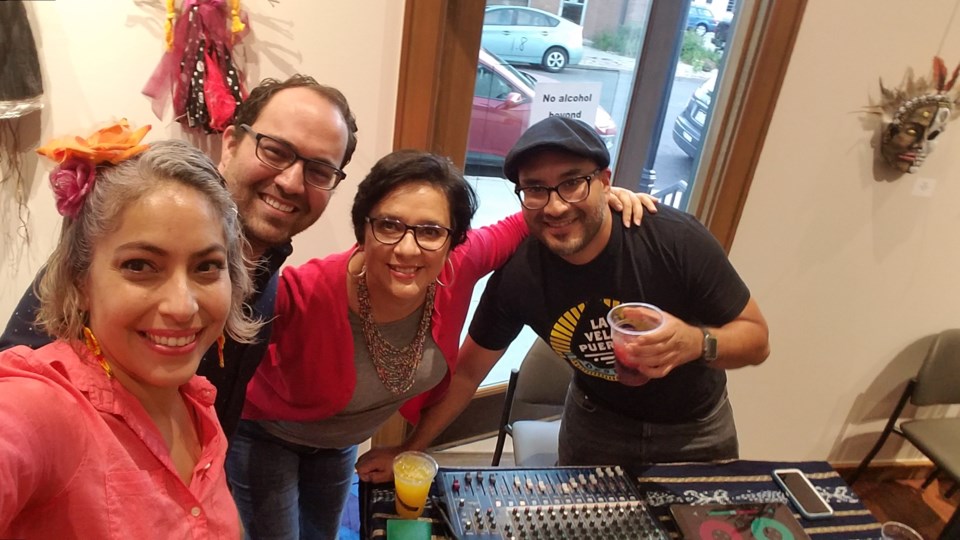On Monday, 28 Boulder County residents met over Zoom to learn how to better advocate for access to resources and information, including language and cultural competency. All are participants in the fall Cultural Brokers training, a free, five-week, 20-hour virtual professional development opportunity.
The training will delve into institutional expectations, resource navigation, advocacy and activism, as well as tools to promote language access and collaboration, according to the email announcement of the program sent by Guillermo Estrada-Rivera, Cultural Brokers Resilience Program coordinator. The goal of the program, as well as the training, is to ensure community members are receiving vital information in times of natural disaster or crisis in a way that connects with them culturally.
“We can save lives if we can bridge cultural and language divides to make sure the information is accessible and culturally relevant for people really to get what they need,” said Laura Soto-Rubalcava, training facilitator and operations manager at Philanthropiece Foundation.
Estrada-Rivera, also a training facilitator, said, “What we are most interested in is that participants, besides acquiring the professional toolkit we will provide, have a sense of the importance of soft skills such as compassion, empathy and cultural competency, which not everyone has and are important pieces of the work. (Cultural brokering) is not a 9-to-5 job, you are on call all the time. This training arose as a response to the community request to provide structure and recognition to the labor of cultural brokers.”
The Cultural Brokers Resilience Program is an effort of the Boulder County Community Action Program, which focuses on “community organizing and advocacy on low income issues.” It grew from the Longmont Resiliency for All project and other efforts to identify barriers to resources experienced in the Latino and minority communities.
The training seeks to bring together a diverse group of representatives from communities across the county, according to Estrada-Rivera.
“There is representation from the Latinx, African American, white, Muslim, LGBTQIA+, older adults, people with disabilities, mountain and business communities,” he said.
“There (also) are some participants that will be working on the COVID-19 Community Task Force and will connect communities through the (Boulder County) Forward Together Safely initiative … it will be an additional support to this task force given the county’s commitment to processes of adaptation and mitigation to the pandemic in a culturally competent way.”
Carla Colín is among those participating in the training and also is a member of the COVID-19 Community Task Force and a Boulder County Community Engagement Task Force coordinator. She said while she has not felt deep impacts of the coronavirus pandemic, she wants to learn how to better support those who are hurting because of it.
“Thankfully, I have not suffered much during these hard times because I have been able to keep my job and work from home, but there are members of the community that depend on the help from nonprofit organizations and government agencies, and I want to learn how much … farther I can go as a cultural broker to support the community and how much more we can do to help,” she said.
Nina Christensen, a training participant and bilingual wellness outreach coordinator at Boulder County, said the time is right for such training.
“Even with it being really new, this is a training that seems so needed, especially where we are as a country and in the world, with everything that is going on. It is a good reminder for us in the community that we really need to take the time to help each other in a way that is meaningful,” she said.
Adriana Perea said her aim in taking the training is to elevate the role of cultural brokers in order to create change.
“My ultimate goal (in participating) is to be able to advocate for resources and the needs of cultural brokers. … I see that there is an awareness of cultural brokers in our community but what does this really mean? How do we create awareness that this is a value and a skill set? And what initiatives or what is going to be done to support this? One thing is to acknowledge that this is a skill set and another one is to take action, being able to advocate for cultural brokers, being able to change the system,” said Perea, who is a community relations specialist with the city of Longmont.
The training, for which Maciel Leon also is a facilitator, is being conducted via Zoom and Google Classroom because of the pandemic, and will run through September. It is the second such training since 2019.
“We still are in an infant stage of the program and need to promote and inform the community about what this program is to work on retention, retaining and career growth of cultural brokers,” Soto said.



